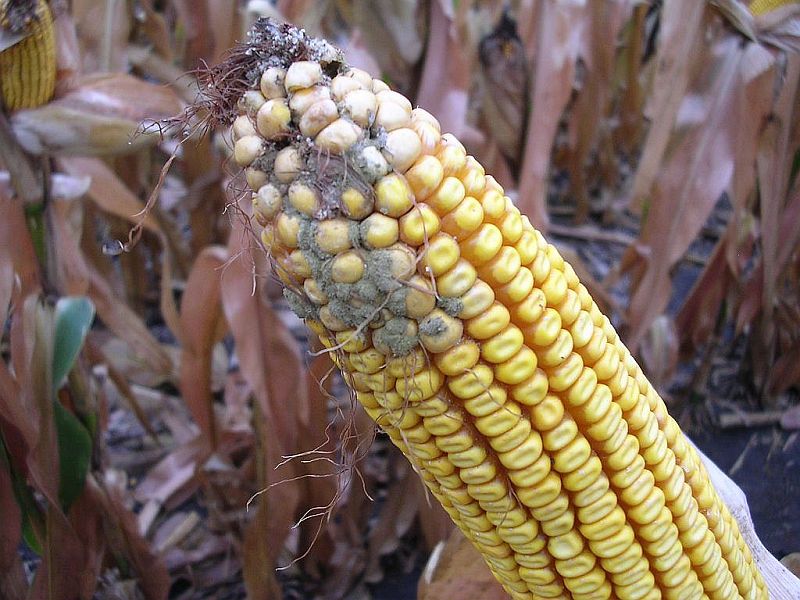Submitted by BethBradshaw on 6 February 2018
Aflatoxins are produced when Aspergillus grows on crops such maize and peanuts; consuming the crops results in aflatoxicosis poisoning, which can be fatal. Biocontrol products are available in the form of seed coatings laced with spores from non-toxin-producing strain of Aspergillus, which can compete out the harmful strains.
Dr Antonio Mauro and colleagues conducted field trials of a new product, AF-X1TM, which uses a harmless strain of Aspergillus flavus (A2085) that is native to Italy. Previous studies of Italian maize have found levels of aflatoxin B1 in human food and animal feed ranging from 8–150 μg/kg, while the maximum allowed by EU regulations is 0.5–12 μg/kg (depending on the crop). Application of AF-X1 to maize crops in North Italy resulted in a 92% reduction in aflatoxin B1, from an average of 70 μg/kg to below 10 μg/kg.
Products like these are a good addition to an integrated pest management (IPM) strategy, which can prevent food wastage and reduce the need for agrochemicals. Other non-chemical management techniques for Aspergillus ear rot include: early planting of regionally-adapted hybrids that perform well under drought conditions; sowing a moderate number of plants per area and keeping them adequately irrigated; harvesting and storing contaminated crops separately.
Read the paper here: Mauro et al (2017) Biological Control Products for Aflatoxin Prevention in Italy: Commercial Field Evaluation of Atoxigenic Aspergillus flavus Active Ingredients. Toxins 10(30)

News archives
-
Title
Date


